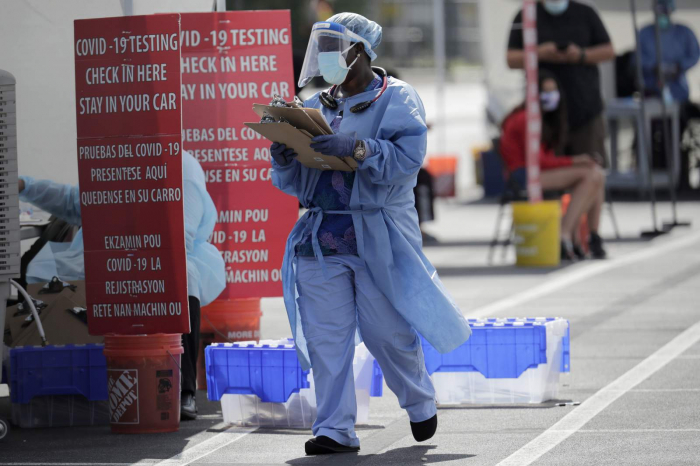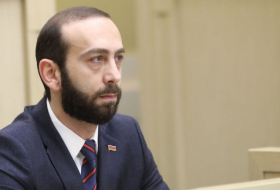US President Joe Biden started his term with a beautifully crafted speech that caught the spirit of a country exhausted by Trumpism and COVID-19. Biden has promised a “full-scale, wartime effort” against the pandemic. But hasn’t our tired world already been in the trenches for a year now?
On March 19, 2020, when Donald Trump belatedly started to act as though the coronavirus might be serious, he referred to “our big war” and promised to “continue our relentless effort to defeat the Chinese virus.” Similarly, Chinese President Xi Jinping on February 6, 2020, declared a “people’s war” against the virus.
Of course, Trump’s war quickly went off the rails, as have previous US attempts to deploy the war analogy outside of a military or diplomatic context. In June 1971, President Richard Nixon, calling drug abuse “public enemy number one,” launchedthe “war on drugs,” which President Ronald Reagan expanded. Fifty years later, this mobilization is almost universally recognized as having failed.
Likewise, the “war on terror,” declared by President George W. Bush following the attacks of September 11, 2001, succeeded merely in preventing a precise repetition of that event. Not only were there plenty of other attacks elsewhere, but terror proliferated, becoming a tool for groups like US white nationalists and Trump supporters. The warriors against terror were fighting a tactic, not a target.
So, what does it take to win a war? For starters, victory requires a complete mobilization of people and resources. We cannot even hope to succeed against COVID-19 unless we marshal the contributions of many different individuals – most of them low-paid, disadvantaged workers in health, transportation, logistics, and other critical sectors.
Historically, wars have been waged with the promise that those who fought them would be rewarded. World War II was transformative in the sense that not only was the enemy defeated, but a better world was built in its aftermath. Health care, education, and infrastructure were extended to the benefit of society at large.
Victory also depends on “great logistics,” as a spokeswoman for the courier and freight service UPS pointed out during a White House event early in the crisis. But great logistics hasn’t happened. Instead, COVID-19 test results are still routinely held up for the oddest reasons, and the United States has scarcely even bothered with virus monitoring or contact tracing.
Without sound logistics management, everything else can fall apart. In World War I, Czarist Russia produced more than enough grain to feed its population, but the big cities endured terrible starvation. Officials blamed the inadequate rail system. In fact, there were plenty of railcars to transport grain, but they were in the wrong place. Rail workers had no shoes, and thus could not turn up for work.
Pandemics, like wars, produce shortages of critical resources, whereupon decentralized procurement can trigger bidding wars, with local and state agencies pushing up the prices of protective equipment, medical supplies, or vaccines. Disputes about prioritizing vaccination are likely to create tension between organized groups, from pensioners and medical providers to teachers and other essential workers. In wars that are waged successfully, the management of supplies is centralized to prevent their diversion to inefficient or undesirable uses.
Wars also give rise to international competition, which can fuel anger of the kind expressed by European Union citizens who see vaccinations proceeding faster in the United Kingdom and Israel than in their own countries. The companies that produce vaccines – Pfizer, AstraZeneca, Johnson & Johnson, GlaxoSmithKline, Merck, Moderna, Novavax, and Sanofi – have facilities in many countries. But they need to be able to operate worldwide without worrying about how production will affect pricing strategies in segmented markets.
Another issue for suppliers is transient demand. Vaccine manufacturers face a problem analogous to that of armament manufacturers before and during wars: if they invest in gigantic production plants, they will end up with massive unused facilities when the war is over. Hence, there needs to be more clarity (and creativity) about how the infrastructure used against COVID-19 can be repurposed. At least the novel techniques used in the mRNA vaccines will be useful to combat a wide range of diseases and disorders in the future.
Wars also need to be paid for. In the past, countries facing the prospect of a massive war bill assumed that in victory they could impose the costs on the defeated power. The Trump administration tried this approach when it insisted that China should pay a “big price” for its role in the pandemic, especially considering that it had already returned to economic growth before the end of 2020. In any case, even friends and allies will squabble over the settling of war debts. In the case of COVID-19, the only realistic scenario is that no one else is going to pay; demands for reparations will merely poison international diplomacy.
Finally, the war on COVID-19 has involved massive fiscal and monetary stimulus, far beyond the levels in response to the 2008 global financial crisis. As such, it is important that governments start preparing long-term stabilization programs to prevent bottlenecks, shortages, and price increases when the emergency is over.
This may sound like attempting to square a circle. The key is to focus precisely on the need of the moment, while accepting that many other needs cannot be easily determined. We need instruments for today that can also be used in different ways tomorrow. And while we look ahead to a better future, we also should prepare for higher taxes.
There is a model for managing such temporal dilemmas. The post-WWII vision relied on a surge of economic dynamism that provided a bridge from war to peace. Without strong, shared growth, the burden of the war would have been unbearable. Only a transformative vision of a generally healthier society can help us overcome today’s dismal reality.
Harold James is Professor of History and International Affairs at Princeton University and a senior fellow at the Center for International Governance Innovation. A specialist on German economic history and on globalization, he is a co-author of The Euro and The Battle of Ideas, and the author of The Creation and Destruction of Value: The Globalization Cycle, Krupp: A History of the Legendary German Firm, and Making the European Monetary Union.
Read the original article on project-syndicate.org.
More about:
















































